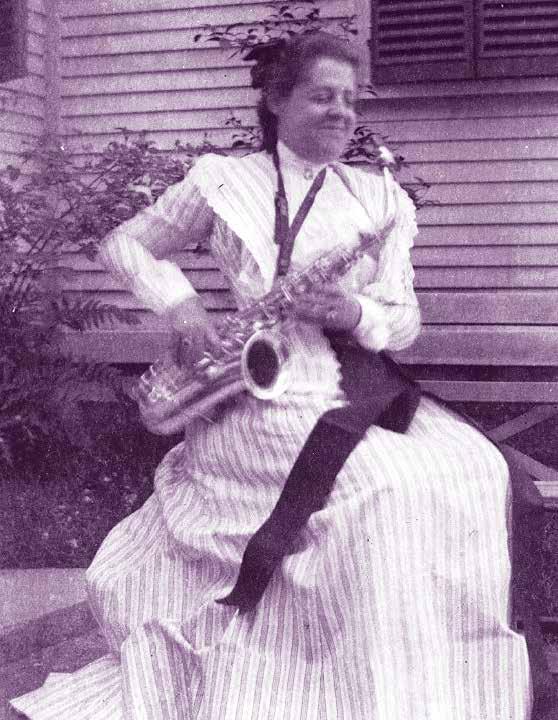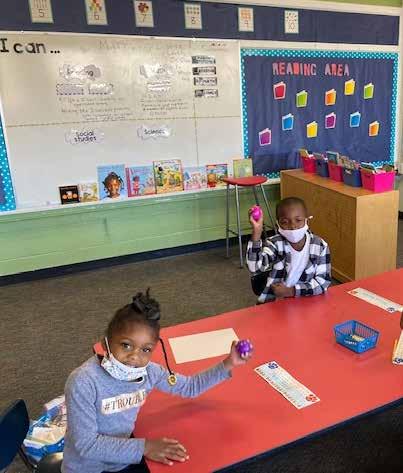BY A N N G I BBE N S DAV I S
The Accompanying Career: Music in Partnership Editor’s Note: This excellent article was first published in The Triangle in the Fall 1976 issue and is as relevant today as it was then. Only minor updates have been made to the original story. The author’s original bio has been replaced with a current one. An accompanying career opens the door to one of the most varied and satisfying areas in the music profession. Accompanying is an old as mankind — early man used drums to accompany his own voice — but not until Schubert, the innovator, did accompanying become an art. It is richly rewarding, ranging from the simple piano accompaniment to the higher levels of professional accompanying, vocal coaching, and chamber music. It demands special aptitudes, training, and insight. Success requires sensitive ears, a sensitive musical intellect, and last but not least, that repository of all human feelings — a heart. Accompanying is a complex acquired art. It is partially true that an accompanist is born and not made, but the skills required for a successful career must be learned. Command of an exceptionally large repertoire ranging from the enormous song literature for all voices through solo and chamber music for stings and woodwinds to opera, oratorio and symphonic reductions comes only with education and experience. Guidance by others along the road to proficiency is important, but the initiative to learn must come from within the individual. Many of the necessary skills are learned by experience alone. Choice of this career should be made with the firm conviction that accompanying is a highly worthy art. It should not be considered second best to solo piano performing. The role should be thought of as a partnership with the soloist, not as subservient to them. The field of accompanying offers the pianist who has never before worked in partnership with another musician a world of infinite variety and rewarding relationships.
DEVELOPMENT OF SKILLS Not all pianists are good accompanists. There are differences in aptitudes, areas of concentration, and a frequent inability on the part of the solo pianist to play a more subordinate role. The early stages of development of the solo pianist and the accompanist are, however, alike: both must acquire highly refined technical skills in finger development and body movement — fluid finger dexterity and the right proportion of arm and body weight. Both must know how to use their instrument: the piano is a percussive instrument and at times percussive sounds are desired; however, it 18 MuPhiEpsilon.org
need not sound as if played with hammers. More often a warm, resonant sound is required, achieved by proper arm and body weight and by listening and thinking a singing line — molding the piano in a lyric way. The piano’s sound then becomes an extension of the accompanist’s inner thinking. Although technical demands vary with the types of accompanying, a good technical foundation is desirable for all accompanists. While many vocal accompaniments do not require the highly developed technique necessary for solo instrumental accompaniments and chamber music, a mature accompanist must be prepared for all types of situations. The technical equipment of the accompanist requires additional skills not usually needed by the piano soloist. A good accompanist must be an excellent sight-reader. Their mind must be alert to recognize instantly the patterns of passages written on the page and at virtually the same instant translate them into finger patterns. Playing large quantities of literature will help one achieve sight-reading proficiency. In most instances sight-reading ability is more important to a professional accompanist than to a solo pianist, whose work generally culminates in memorization. Not so for the accompanist, who has less opportunity to become familiar with the music to be played. The rehearsal accompanist in particular is paid for proficiency in sight-reading. They should need only a little time to look over the music; a few seconds on each page should be sufficient to recognize difficult passages. Other necessary skills include a working knowledge of transposition. Not all persons have the gift of transposing by ear, but transposition by clefs and by intervals can be learned through practice. An accompanist seeking to give full scope to his professional opportunities should also obtain experience in playing the harpsichord and the organ. There is often a need for a skilled harpsichord player in Baroque music. Even wider opportunities are open to organists. Authoritative knowledge of styles is particularly important to an accompanist. The same elements that determine the style of a composition should determine its style of performance: melody, rhythm, and form, as well as type of composition (sonata, verse,







